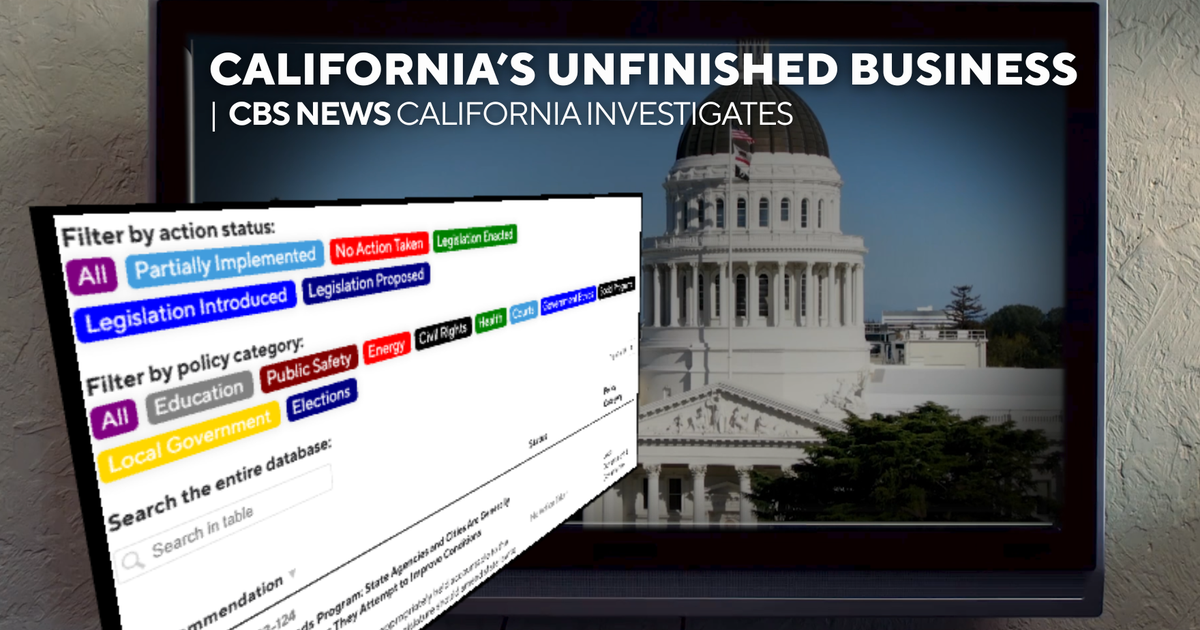House may consider proxy voting during coronavirus crisis
The chairman of the House Rules Committee has concluded that voting remotely is not a viable option, after dozens of lawmakers urged Congress to consider it out of concern about the spread of the coronavirus. Chairman Jim McGovern, Democrat of Massachusetts, has another idea.
In a new report released Monday night, McGovern said that while there is "no perfect solution" for absent members to vote on the floor, proxy voting — as opposed to remote voting — is "the best of the options available under the circumstances." Proxy voting would allow members to cast votes without traveling back to Washington, D.C., which would help limit the spread of COVID-19.
"[U]nlike remote voting, proxy voting has a basis in parliamentary tradition and is not accompanied by the same security and technology concerns," McGovern said in the report.
McGovern pointed to state legislatures in Oklahoma and Pennsylvania as examples showing the efficacy of proxy voting during the coronavirus pandemic. In allowing a proxy vote, members would allow colleagues to vote on their behalf for a prescribed period of time if they're unable to return to the Capitol. In this case, those members would include the dozens of members who are either in self-quarantine or ill.
"Proxy voting has precedent in the House and Senate, and would not face many of the technology and security problems faced by remote voting," the report states.
The House is not currently in session, but it could be called back soon to consider legislation to help Americans deal with the devastating financial impacts of the virus. Members are currently waiting for the Senate to finalize a deal on the giant third coronavirus stimulus package.
McGovern also urged lawmakers in the House to pass the stimulus bill by unanimous consent or a voice vote, whereby the House presumes a quorum is present unless a point of order is made. Those recommendations would be "by far the best," McGovern argues, because they would rely on existing House rules and would not require lawmakers to return to Washington, D.C., for a vote.
"Unanimous consent agreements and voice votes are longstanding practices that have stood the test of time, and successful use of them is not out of the realm of possibility given the fact that any critical legislation would have to have broad bipartisan support to reach the President's desk and receive a signature," the report states.
However, hours before the report was released, about 70 members raised the pressure on leadership to facilitate remote voting, asking for a temporary rule change during the coronavirus outbreak. More members signed on to the letter after learning Senator Rand Paul had tested positive for COVID-19. In the Senate, however, remote voting gained support across both parties after increased diagnoses in Congress.
McGovern, who was tasked by House Speaker Nancy Pelosi to study the feasibility of voting remotely for the third coronavirus economic stimulus package, said it would be too complicated to change the rules for remote voting – which has security, legal and logistical issues – in time to vote on the stimulus bill.
"A rule change of this magnitude would also be one of the biggest rule changes in the last century, in one of the most critical institutions in our country," the report states.
Speaker Pelosi has repeatedly shot down the idea of remote voting but said Monday "we'll see what we're going to do" when asked if she was planning on bringing back all House members.
"Remote voting is also a novel method of voting with no parliamentary history or basis," the report states. McGovern added further that it is "inadvisable unprecedented parliamentary procedures on critical legislation."
The chairman's report comes as Congressman Ben McAdams, a Utah Democrat, Congressmen Mario Diaz-Balart, Republican of Florida and Kentucky Senator Rand Paul have all tested positive for COVID-19. McAdams was hospitalized, but said in a statement that he had improved and expected to be released soon. Dozens of members in both chambers have self-quarantined after coming into contact with an individual or individuals who later tested positive for the virus.



